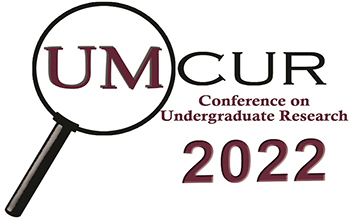Project Type
Poster
Faculty Mentor’s Full Name
Andrew Wilcox
Faculty Mentor’s Department
Geosciences
Abstract / Artist's Statement
As noxious weeds and our efforts to control them become more consequential, it’s important we expand our understanding of how herbicides affect the ecosystem. It’s well understood that vegetation is a control of landforms just as landforms are a control of vegetation (Osterkamp, Hupp, and Stoffel 2012, 23-36). Herbicides have a significant effect on plant life -- it follows that herbicides would have some effect on the landscape. The objective of this study is to learn about how herbicides affect plant cover and surface features. The study site –The National Wildlife Federation Winter Elk Range near Missoula- is a grassy hillside and serves as a proxy for many semi-arid grasslands in the northwest. The method will be a binary survey on sites with and without a history of herbicide treatment. The survey will include qualitative data from field observations conducted by the author and leverage available Lidar data, precipitation data, historical images, and data from land managers.
Category
Life Sciences
Poster
Surface Effects of herbicides on Wild Grasslands near Missoula
UC South Ballroom
As noxious weeds and our efforts to control them become more consequential, it’s important we expand our understanding of how herbicides affect the ecosystem. It’s well understood that vegetation is a control of landforms just as landforms are a control of vegetation (Osterkamp, Hupp, and Stoffel 2012, 23-36). Herbicides have a significant effect on plant life -- it follows that herbicides would have some effect on the landscape. The objective of this study is to learn about how herbicides affect plant cover and surface features. The study site –The National Wildlife Federation Winter Elk Range near Missoula- is a grassy hillside and serves as a proxy for many semi-arid grasslands in the northwest. The method will be a binary survey on sites with and without a history of herbicide treatment. The survey will include qualitative data from field observations conducted by the author and leverage available Lidar data, precipitation data, historical images, and data from land managers.
